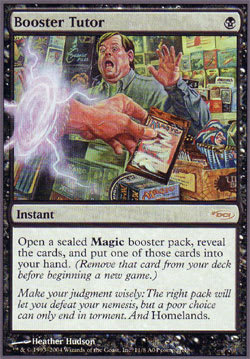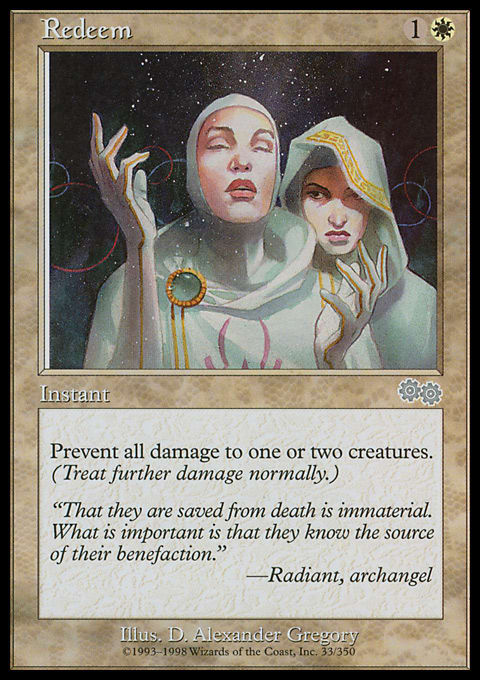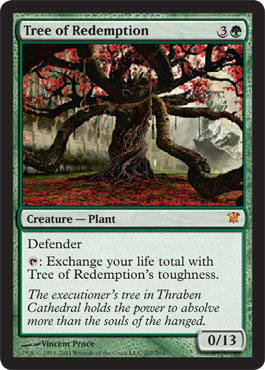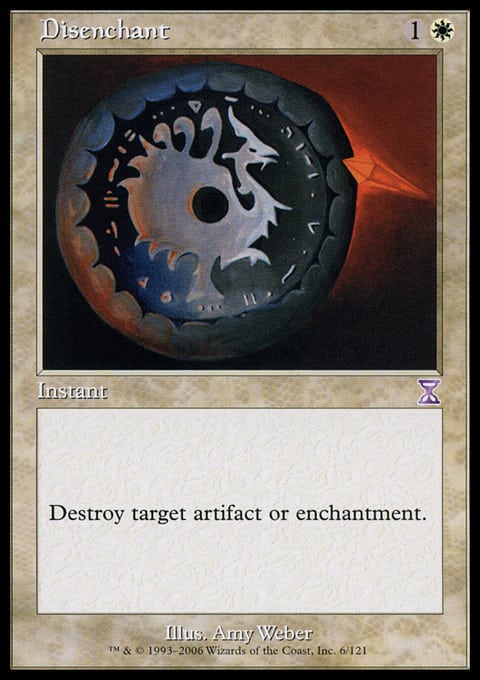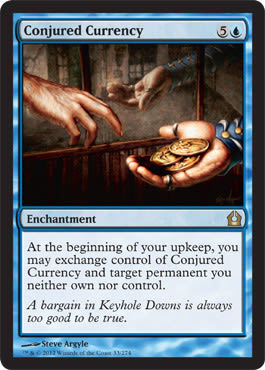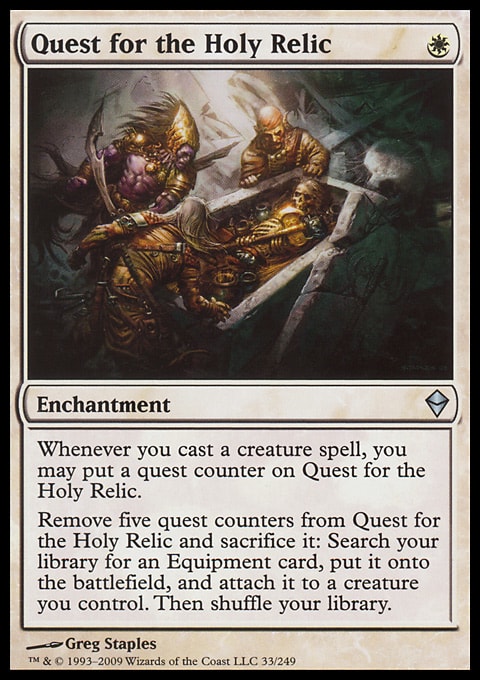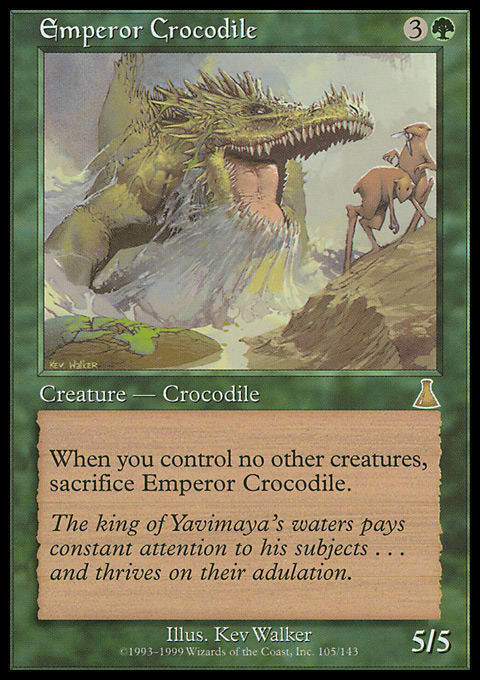The Pack Is King
To understand why the Magic Online economy is the way it is, you need to adopt the Wizards mindset that The Pack Is King.
The pack is the primary, fundamental, key vehicle (I cannot stress enough how important this fact is, so please check a thesaurus and add another twenty or so adjectives) for Magic sales.
- The pack is a unique psychological sales tool. The pack holds infinite potential until, much like Schroedinger's box, its contents are observed. Thus, the pack holds value regardless of its actual contents.
- Opening a pack provides the player with a visceral moment of anticipation as it is opened and adrenaline hit when the rare slot is revealed. These moments are psychologically important for further pack sales.
- By selling packs, rather than individual cards, to the market, Wizards ensures that far more product is opened than is actually required for Constructed play. Many, many of these cards will be relegated to the hotel bathtubs of history.
- The pack opens up interesting modes of play beyond Constructed (that is, Limited), which acts as both a pathway to building a collection and a reason to open yet more packs.
The pack has driven the sales of Magic since its inception and has been the foundation of Magic's success.
Selling packs moves paper product.
Selling packs is the core principle of the Magic business model.
Selling packs has been a successful core principle of the Magic business model for almost twenty-five years.
And it is this successful, more-than-twenty-year-old, proven business model that Magic Online is based upon.
- Digital product prices on Magic Online have been directly indexed to paper product. If a pack costs U.S. $4 in paper, the same pack costs U.S. $4 on Magic Online.
- Digital packs provide the backbone of Magic Online play and trade. They are bought or traded for real-world cash or for in-game tickets, cards, or other packs.
- The health of pack prices have been the fundamental backbone of the Magic Online economy. Magic Online pack prices dictate Limited event prices, which in turn inform Constructed event prices.
- Packs have been the primary form of prize-award, at least until the introduction of phantom points and, more recently, player points.
- To justify real-world pricing for digital products, digital sets have been able to be redeemed for paper sets. This originally involved a $5 redemption fee (plus postage), but the redemption “tax” was increased to $25 a couple of years ago.
The ability for players to redeem digital cards in paper, much like paper's Reserved List, has both been key to Magic Online’s success and its curse.
- Redemption is the single justifiable reason to charge paper prices for digital product. However, people are generally not fans of buying anything in the store for paper prices. This can be demonstrated by Wizard’s recent decision to award Commander (2015 Edition) cards through packs (The Pack Is King!) rather than as purchasable as Commander decks in the Magic Online store.
- Redemption provides players the security of a “back-up” value for their digital products, a comfort factor not provided in almost any other digital product. This has been central in getting Magic Online off the ground.
- Redemption has been a useful economic release valve that has kept digital card and pack prices from deflating, as cards are removed from the economy by buyers using redemption to arbitrage digital product into paper sales.
- Redemption is also the millstone around Magic Online's neck, preventing it from pursuing more competitive economic models and keeping store prices artificially high; for instance, supplementary products immune to redemption have no reason to be sold at Paper MRSP, other than to maintain parity with store pack prices.
Compare Magic Online's business model to an alternative, pack-based model used in one of Magic Online's key competitors: Hearthstone. Note that Wizards does not appear to consider Hearthstone a direct competitor to Magic Online, but rather a direct competitor to the Duels of the Planeswalker series. While there is certainly an element of alignment in terms of player profile, platform availability, and commercial model, I believe it is a mistake for Wizards to narrowly define Duels as the Hearthstone competitor and Magic Online as “something else.” “Magic Online Lite” and Magic Online are two different products that both, in reality, compete with Hearthstone for player attention and wallets.
Hearthstone has several in-game products:
- Cards — These can be obtained a number of ways: A core set of cards can be earned by leveling up the hero avatars; cards can be cracked by opening packs; cards can be unlocked by purchasing and completing the expansion sets; and cards can be won by playing in the arena. You can “disenchant” a card for another product: dust.
- Packs — These are both sold in store as a rapid way of building a collection and awarded as prizes from arena games. However, they are not accepted as entry payment into the arena itself, they can’t be redeemed for anything, and they can’t be traded away. They can only be opened to turn into cards.
- Gold — This is the basic currency of the game, used to either pay for packs, arena participation, or expansions. Gold can be earned simply by playing the game (and winning) or as a reward for completing daily quests.
- Dust — This is the other “currency,” used to grind out rarer cards required for competitive constructed play that a player hasn't opened in a pack. Dust is designed for the “Blizzard grind,” probably based on years of research by Blizzard on player motivation habits.
- Cosmetics — Other Hearthstone products are cosmetic in value, serving the same purpose as a real-world play mat or card-sleeve back.
There is a clear funnel of Hearthstone investment:
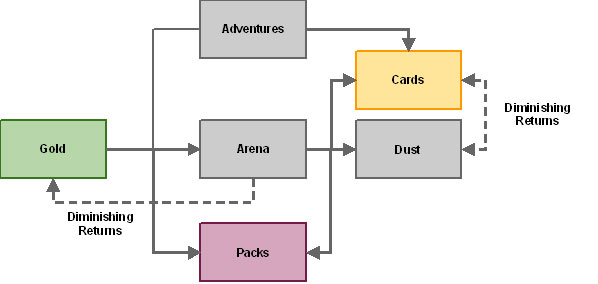
Magic Duels is even simpler. The original games had an initial buy-in with a basic play-to-unlock model. The latest game, Duels Origins, uses a model much more aligned to Hearthstone: free to download, with the gold grind used to unlock further cards. However, in every Duels game, no one expects to build a full Magic collection in a single Duels game, but to play and discard each subsequent iteration.
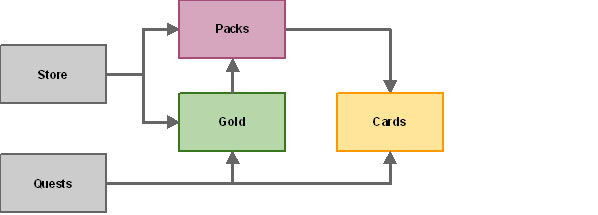
Alternatively, the Magic Online funnel is anything but clear.
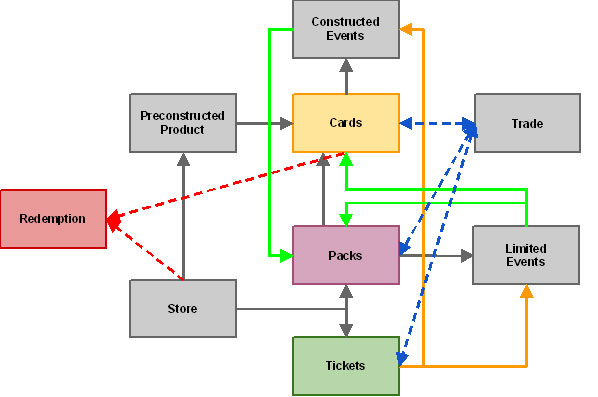
Anyone can own every Hearthstone card for free—just as long as that person invests enough time, rather than money. As this time overhead is generally too high for someone not dedicating his or her very soul to Hearthstone, most people recognize that, to acquire a card quickly, you're best off trying to “crack” it by opening enough packs. Thus, the Hearthstone store offers bulk pack purchases to encourage people to crack packs. Packs are only good for one thing on Hearthstone—cracking—so this is what people do to quickly find the cards required to build a competitive Constructed deck.
Hearthstone's structure is focused on getting people to build collections in order to play Constructed. Collecting is encouraged through playing large amounts of paid (via gold or cash) arena. Constructed play is incentivized by Constructed ranking, which is not available through arena play. This is different from Magic Online, in which there are (generally) Limited specialists and Constructed specialists, albeit with some crossover. It’s also different to Duels, where card pool is locked, essentially ground out through set play, and available to anyone who does so.
As Hearthstone does not allow players to trade cards or packs between each other, the economy is one-way—from the player to Blizzard. This is the diametric opposite to Magic Online, in which players, Wizards, and bot owners (effectively online stores) share a communal economy of packs, cards, and tickets. This makes the Magic Online economy dramatically more complicated than hearthstone, and the economic drivers, levers, and equilibrium a lot more unstable. Additionally, Hearthstone arena awards prizes in a seemingly random mix of packs, dust, gold, and single cards, whereas Magic Online rewards are predictable in terms of expected value (EV).
The question becomes, Is the paper business model the right business model for Wizards's digital products? The answer to this is the timeless, "Yes, but . . . " or, "No, however . . . "
- Wizards has made substantial effort to clean up their pay-to-play model. Prize structures, entry payments (for instance phantom points and play points) have all been tinkered with over the past few years. Wizards has both local gambling laws and legacy issues, such as paper price indexing, to contend with. However, Wizards still works on a system that is fundamentally indexed to paper prices.
- The price point of Hearthstone—whether it be pack purchases or playing a Draft—is substantially below that of Magic Online, as it can hew closely to costs in other freemium and pay-to-play models. This price point gives Hearthstone a competitive advantage over Magic Online. Hearthstone is streamlined in how it turns over matches (for instance, there’s no two-game-win rule), thereby driving revenue through quantity rather than cost.
- Hearthstone avoids a number of Magic Online’s issues by being a collectible card game rather than a tradable card game. Hearthstone has no secondary market to care about, and the end result of all play is the expansion of a user’s collection, driving him or her toward Constructed play. In Magic Online, a Limited player can trade away all his or her cards in order to continue playing, which drives different pressures on Constructed singleton prices and pack prices.
- Regardless of Wizards’s public stance that it doesn’t care about the secondary market, the secondary market for Constructed singletons is one of the key indicators that keeps pack prices afloat. For instance, if a set has few chase rares (e.g. Fate Reforged), the bottom will drop out of pack prices (at least on Magic Online), and as a result, being awarded those packs significantly lowers the EV of an event.
- As long as Magic Online digital prices are indexed to paper prices, Wizards is trapped in just how innovative, flexible, or competitive it can be. However, much like Wizards’s commitment to the Reserved List, a commitment to redemption and the value guarantee it provides players is hard to break. I would argue, though, that regardless of how heavily Wizards chooses to tax redemption, in the long run, for the health of the digital game, redemption could be scrapped and the entire price model for Magic Online restructured. Yes, this will have an impact on the value of digital collections already licensed by players.
Wizards could be sitting on an unrealized fortune from the radical expansion of its player base through the reduction of the cost of entry (which could be particularly explosive if married with reducing the user interface barriers to entry), as proved by Hearthstone’s fantastically fast take-up. But proving this would require two things: killing the idea that The Pack Is King and killing redemption.
Once redemption has been scrapped, enormous opportunities open up for Wizards. Alternate modes of payment—subscription, earned Drafts (through Hearthstone-like quests, for instance), freemium models, cut-price Drafts—all become possible.
Killing redemption is the half-likely to garner the most resistance or reaction from the Magic Online player base. Certainly, bot owners who use redemption to arbitrage between Magic Online prices and paper will complain the loudest. Those building collections—especially for Commander, Legacy, or Vintage—have already committed to investing in cards they can never redeem and are comfortable with the disparity between Magic Online and paper prices in those areas (take, for instance, the digital and paper gulf between Bazaar of Baghdad). However, they will still be able to trade for cards with other collectors, and Limited players, and the Magic Online economy, will continue. I’ll admit it is likely that the bottom would completely fall out of Limited trash.
An alternate model to redemption is entirely possible. Perhaps a buy-back model in exchange for play points by Wizards, or a Hearthstone “dust” equivalent, would allow Limited players to claw back some of the EV of Drafts and provide an economic level to continue to take cards out of the Magic Online economy. Most importantly, killing redemption allows Wizards to quickly find a new price point for Drafts. As long as equilibrium between Draft EV and Constructed EV is found, any price that continues to provide a profit to Wizards is possible.
All this flies directly against one key fact: The Pack Is King. “The Pack Is King No Longer” will never survive Wizards resistance. And that, of course, is the Shakespearean rub. As long as Wizards focuses on pushing packs, rather than seeing Magic Online as an alternate profit model through the sale of tickets/play points/gold/whatever, it will never be able to innovate and compete against the up-and-comers.
Wizards makes a healthy profit on paper Magic; the only overhead that Magic Online should cost Wizards is for IT infrastructure and bandwidth, paper-to-digital programming and artwork conversion, and QA/QC—insignificant when compared with taking a paper set through design, development, and testing. I’d guess, even at $1, Wizards would make an incredibly healthy profit selling a digital pack. But if Wizards decided to sell play points, and only play points, and let players earn collections through Magic Online play, much in the way Hearthstone does, you could only speculate at this point how profitable this would be. Would players play four times as many Drafts if drafting cost four times less? At some point, the investment time it takes to actually play a round of Magic on Magic Online would need to be improved before the modeling would work. A subscription-style model, wherein players pay to have access to all cards immediately and then pay small, additional payments to participate in events, would, I suspect, also be attractive to a broad range of players. These economic models, and others, become possible once pushing packs is no longer the prime directive. There is a lot of area to be explored here.
But . . . The Pack Is King. Wizards is unlikely to move from this foundational philosophy any time soon. Redemption is the foundation of pack prices on Magic Online, both the reason the economy ticks along and the reason innovation in pay-to-play models is stifled. For true change to occur on Magic Online, both these foundation stones need to be destroyed, and that is unlikely to happen any time soon.
















